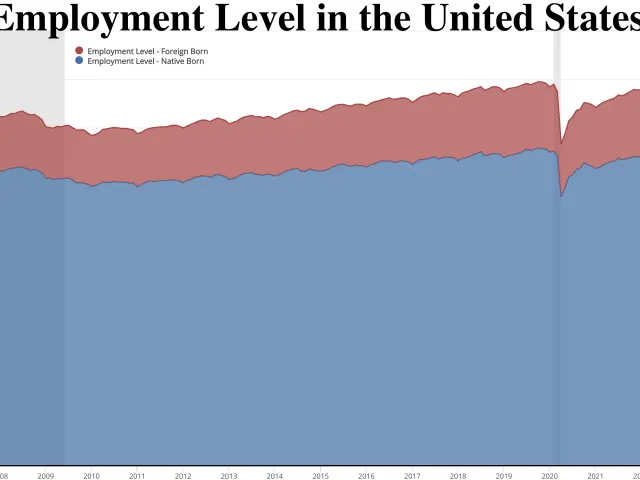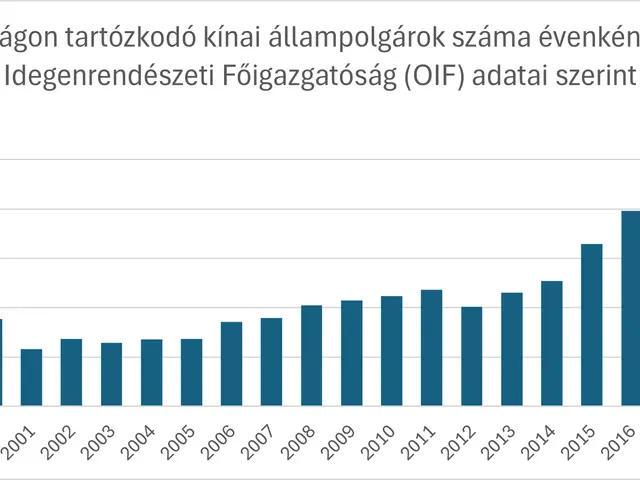Minister of Justice prioritizes spousal support obligations above other financial obligations.
Hey there! Let's talk about some important changes in Kuwait's financial landscape involving court-ordered alimony payments.
It seems that the Minister of Justice, Nasser Al-Sumait, has underscored the importance of court-ordered alimony payments, making them take precedence over other debts, even government ones, when banks deduct salaries from employees. However, the total deduction should not surpass 50% of the employee's permanent salary.
According to Al-Rai daily and ministry sources, the Central Bank of Kuwait has issued a letter from the Minister of Finance, Engineer Noura Al-Fassam, urging banks to abide by Article (216) of the Civil and Commercial Procedures Law. This article prohibits salary seizures beyond legal limits.
Al-Sumait clarified that alimony payments and government debts must be settled before moving on to other debts. When both apply, alimony payments have priority. After these deductions, any remaining amount can be deducted until the 50% salary cap is reached.
The General Administration of Execution under the Ministry of Justice has updated its system to facilitate these changes, allowing salary garnishments between 25% and 50%, depending on the nature of the debt. Banks are preparing for an expected surge in garnishment requests, with potentially 1,000 per day, and suggest including the required deduction percentage in garnishment requests.
It's interesting to note that current regulations in Kuwait prioritize court-ordered alimony payments greatly, even if other debts are involved. This prioritization stems from the Justice Ministry, and it's backed by the Central Bank and other financial institutions. Additionally, Kuwait's recent legal climate, including reinstating debtors' imprisonment, highlights a commitment to strict enforcement of financial obligations such as alimony (Check Footnotes #1, #2, and #4 for more details).
Footnotes:
[1] Kuwait’s courts are actively increasing alimony and compensation awards in divorce cases, signaling a judicial trend to ensure proper financial support for ex-spouses, reinforcing the importance given to these payments in enforcement efforts.
[2] The Central Bank of Kuwait (CBK) and other financial institutions, like Kuwait Finance House, comply with these enforcement regulations, making it easier to implement the prioritization of alimony payments when banks withhold salaries or handle employees' financial obligations.
[4] Kuwait’s recent legal climate, including reinstating debt imprisonment, underscores a strident approach to enforcing financial obligations, such as alimony payments, suggesting strong enforcement measures like salary withholding by banks with precedence over other debts.
Businesses in Kuwait are expected to adhere to the prioritization of court-ordered alimony payments over other debts when deducting salaries, as stipulated by the Minister of Justice, Nasser Al-Sumait. This change is supported by the Central Bank of Kuwait and other financial institutions, such as Kuwait Finance House. The General Administration of Execution under the Ministry of Justice has updated its system to facilitate these changes, allowing for salary garnishments between 25% and 50%, depending on the nature of the debt. However, the total deduction should not surpass 50% of the employee's permanent salary. Despite the expected surge in garnishment requests, potentially 1,000 per day, banks are preparing for this by suggesting including the required deduction percentage in garnishment requests. This change emphasizes Kuwait's commitment to enforcing financial obligations like alimony payments, as evident in the recent legal climate, including the reinstatement of debtors' imprisonment (Footnote #4).






